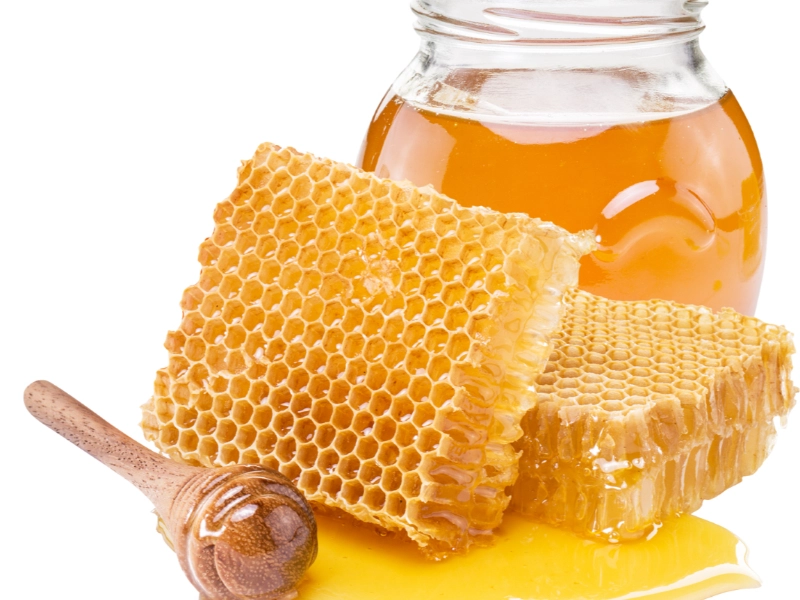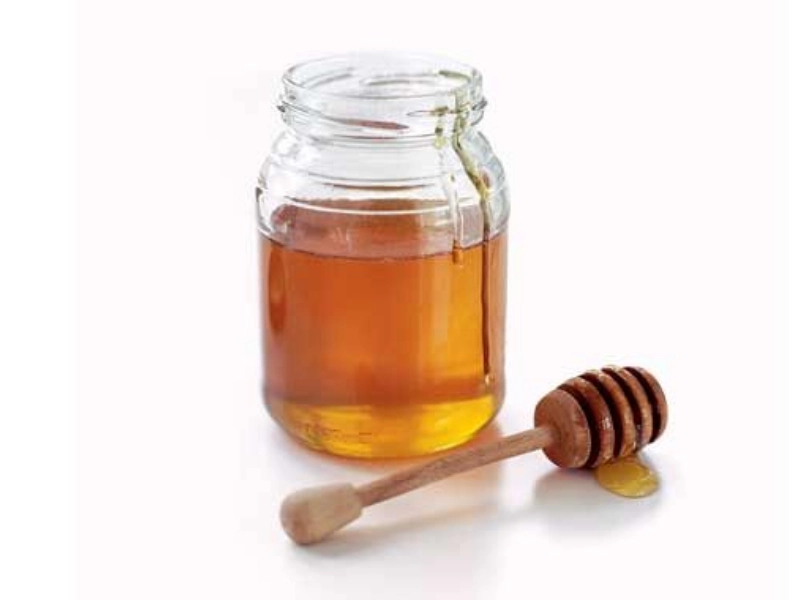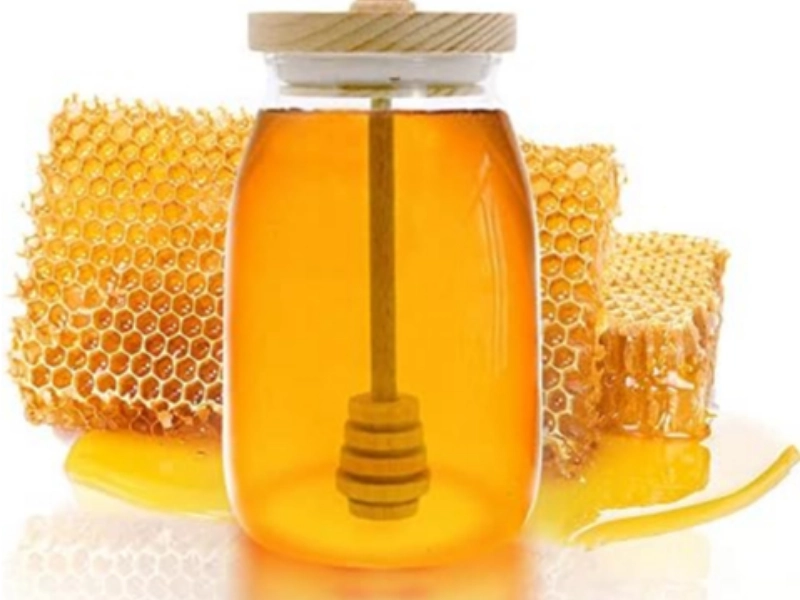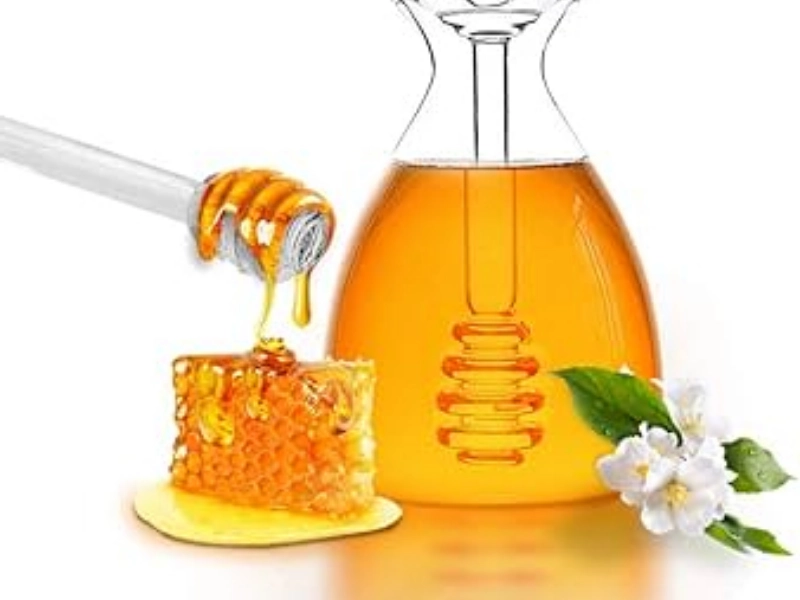Winter is considered the cold season since this is when the usual cold-causing viruses are most common. However, you may already have a natural home treatment for a cough and sore throat in your kitchen. Honey can relieve sore throats and aid with cough suppression. It has been demonstrated to be just as successful as dextromethorphan, a cough suppressant.

 Honey is an antiinflammatory, antioxidant, and naturally occurring sweetener. Selenium, calcium, iron, potassium, and vitamin C are also present.
Many supermarkets and health food businesses carry honey. However, go for raw honey if you want to maximise its health benefits. Unprocessed honey is believed to have a higher concentration of plant components that promote health compared to processed honey.
Mix a tablespoon of honey with powdered ginger (called sonth in India) to relieve a sore throat. Mix this concoction with warm milk and consume it twice a day. Boiling lemon leaves and adding them to the heated liquid is also a smart idea. In metropolitan Mexico, this mixture is used as an extremely powerful natural cough remedy. If you have access to turmeric, you can also use it in this cure. This combination's anti-inflammatory and antioxidant qualities help soothe sore throats fast.
Honey is an antiinflammatory, antioxidant, and naturally occurring sweetener. Selenium, calcium, iron, potassium, and vitamin C are also present.
Many supermarkets and health food businesses carry honey. However, go for raw honey if you want to maximise its health benefits. Unprocessed honey is believed to have a higher concentration of plant components that promote health compared to processed honey.
Mix a tablespoon of honey with powdered ginger (called sonth in India) to relieve a sore throat. Mix this concoction with warm milk and consume it twice a day. Boiling lemon leaves and adding them to the heated liquid is also a smart idea. In metropolitan Mexico, this mixture is used as an extremely powerful natural cough remedy. If you have access to turmeric, you can also use it in this cure. This combination's anti-inflammatory and antioxidant qualities help soothe sore throats fast.
 In addition to being a natural sweetener, honey has several additional health advantages, one of which is that it helps relieve coughs. In addition, it forms a film across mucosal membranes and reduces irritation and inflammation, making it a demulcent.
Although store-bought honey is usually pasteurised—a process meant to destroy yeast cells and keep it from spoiling—it still has a number of healthy minerals. There are additional health advantages to be gained from raw honey, which is unheated and unfiltered.
You can use honey on its own or as an addition to hot beverages like tea. A teaspoon of honey added to warm lemon water or herbal tea before bed will help reduce coughing during the night and promote better sleep. In one trial, honey was shown to be just as successful at reducing coughing fits at night and promoting better sleep as dextromethorphan.
In addition to being a natural sweetener, honey has several additional health advantages, one of which is that it helps relieve coughs. In addition, it forms a film across mucosal membranes and reduces irritation and inflammation, making it a demulcent.
Although store-bought honey is usually pasteurised—a process meant to destroy yeast cells and keep it from spoiling—it still has a number of healthy minerals. There are additional health advantages to be gained from raw honey, which is unheated and unfiltered.
You can use honey on its own or as an addition to hot beverages like tea. A teaspoon of honey added to warm lemon water or herbal tea before bed will help reduce coughing during the night and promote better sleep. In one trial, honey was shown to be just as successful at reducing coughing fits at night and promoting better sleep as dextromethorphan.
 Honey's antibacterial qualities are related to its antioxidant content. It has natural ingredients that aid in healing and also relieve coughing.
According to a 2018 assessment, honey works just as well as various over-the-counter (OTC) cough medicines, such as dextromethorphan (Robitussin) and diphenhydramine (Benadryl). But keep in mind: Due to the possibility of botulism, babies younger than a year old shouldn't have honey.
Raw honey retains more of its health benefits than pasteurised honey since it avoids the procedure that eliminates important components. A variety of vitamins and minerals, including copper, iron, potassium, phosphorus, sodium, calcium, magnesium, sulphur, silicon, and zinc, can be found in honeys that have undergone minimal processing.
Numerous studies demonstrate the anti-inflammatory, antibacterial, and antioxidant qualities of honey's polyphenols and flavonoids. These consist of kaempferol, isorhamnetin, luteolin, hesperetin, gallic acid, ellagic acid, and caffeic acid. The floral source and the climate in which a honey type is produced determine whether or not these compounds are present, as well as their concentration.
Honey's antibacterial qualities are related to its antioxidant content. It has natural ingredients that aid in healing and also relieve coughing.
According to a 2018 assessment, honey works just as well as various over-the-counter (OTC) cough medicines, such as dextromethorphan (Robitussin) and diphenhydramine (Benadryl). But keep in mind: Due to the possibility of botulism, babies younger than a year old shouldn't have honey.
Raw honey retains more of its health benefits than pasteurised honey since it avoids the procedure that eliminates important components. A variety of vitamins and minerals, including copper, iron, potassium, phosphorus, sodium, calcium, magnesium, sulphur, silicon, and zinc, can be found in honeys that have undergone minimal processing.
Numerous studies demonstrate the anti-inflammatory, antibacterial, and antioxidant qualities of honey's polyphenols and flavonoids. These consist of kaempferol, isorhamnetin, luteolin, hesperetin, gallic acid, ellagic acid, and caffeic acid. The floral source and the climate in which a honey type is produced determine whether or not these compounds are present, as well as their concentration.